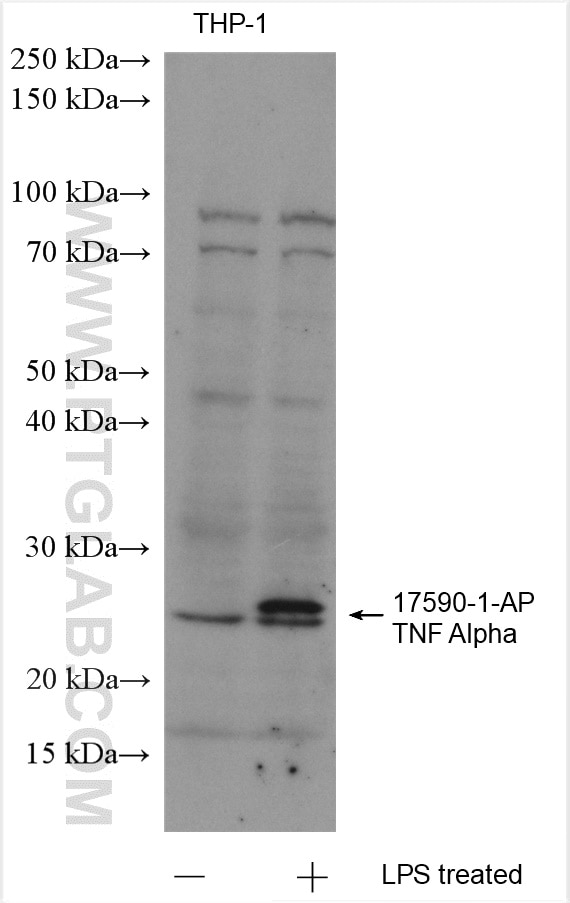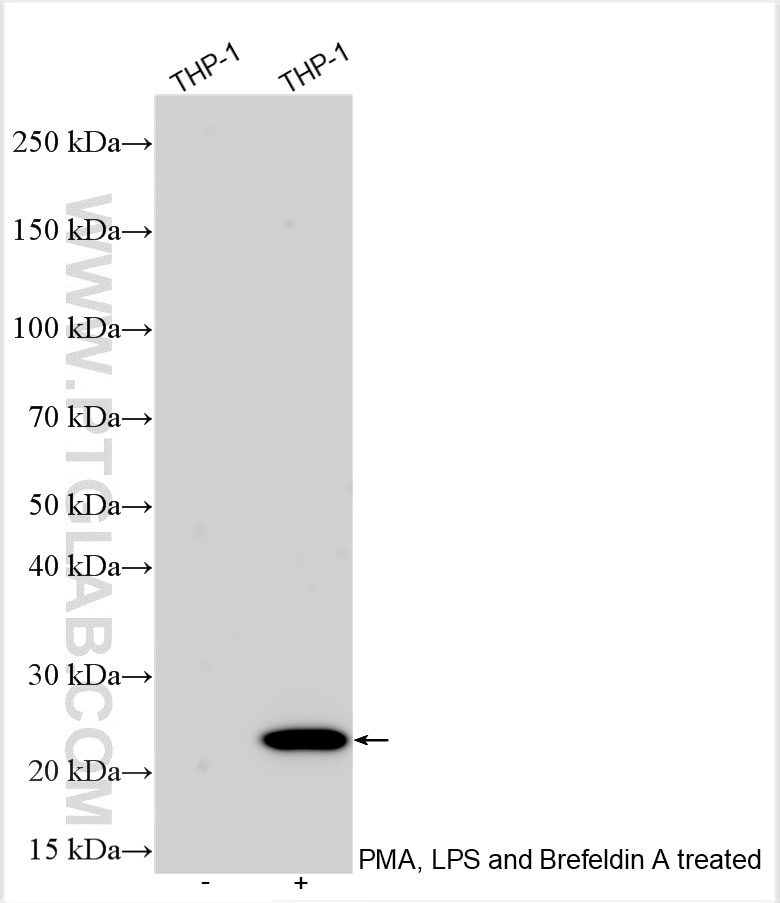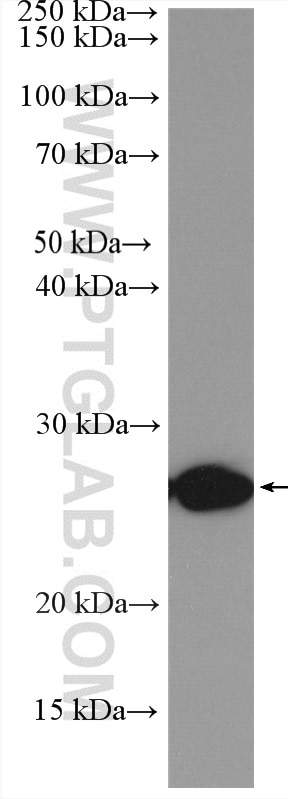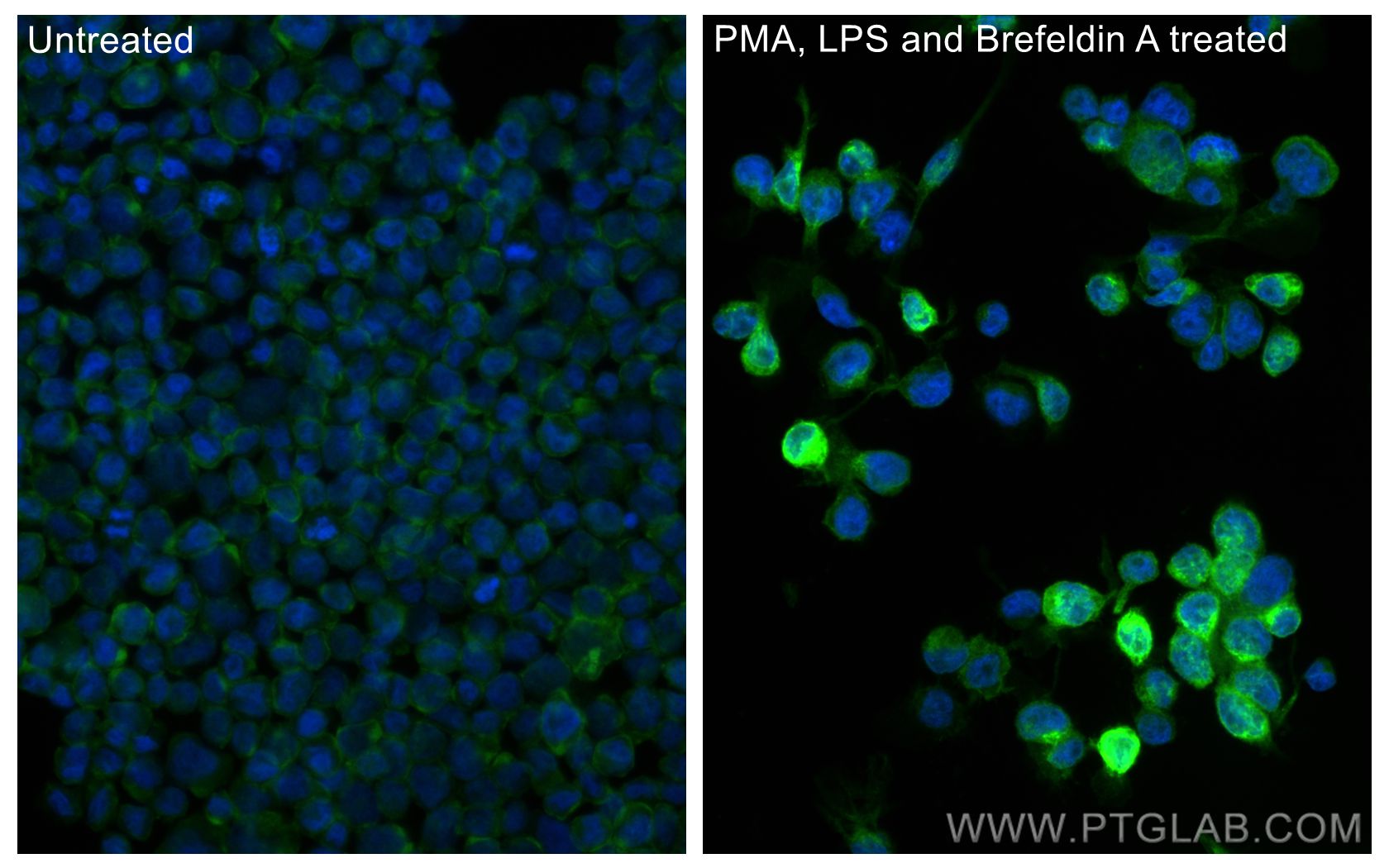Anticorps Polyclonal de lapin anti-TNF-alpha
TNF-alpha Polyclonal Antibody for WB, IF/ICC, ELISA
Hôte / Isotype
Lapin / IgG
Réactivité testée
Humain, souris et plus (4)
Applications
WB, IHC, IF/ICC, ELISA, Transwell Assay, Cell treatment
Conjugaison
Non conjugué
N° de cat : 17590-1-AP
Synonymes
Galerie de données de validation
Applications testées
| Résultats positifs en WB | cellules THP-1, cellules RAW 264.7 traitées au LPS |
| Résultats positifs en IF/ICC | PMA, LPS and Brefeldin A treated THP-1 cells, |
Dilution recommandée
| Application | Dilution |
|---|---|
| Western Blot (WB) | WB : 1:500-1:2000 |
| Immunofluorescence (IF)/ICC | IF/ICC : 1:50-1:500 |
| It is recommended that this reagent should be titrated in each testing system to obtain optimal results. | |
| Sample-dependent, check data in validation data gallery | |
Applications publiées
| WB | See 659 publications below |
| IHC | See 134 publications below |
| IF | See 74 publications below |
| ELISA | See 5 publications below |
Informations sur le produit
17590-1-AP cible TNF-alpha dans les applications de WB, IHC, IF/ICC, ELISA, Transwell Assay, Cell treatment et montre une réactivité avec des échantillons Humain, souris
| Réactivité | Humain, souris |
| Réactivité citée | rat, bovin, Humain, Lapin, souris, fish |
| Hôte / Isotype | Lapin / IgG |
| Clonalité | Polyclonal |
| Type | Anticorps |
| Immunogène | TNF-alpha Protéine recombinante Ag11433 |
| Nom complet | tumor necrosis factor (TNF superfamily, member 2) |
| Masse moléculaire calculée | 233 aa, 26 kDa |
| Poids moléculaire observé | 26 kDa |
| Numéro d’acquisition GenBank | BC028148 |
| Symbole du gène | TNF-alpha |
| Identification du gène (NCBI) | 7124 |
| Conjugaison | Non conjugué |
| Forme | Liquide |
| Méthode de purification | Purification par affinité contre l'antigène |
| Tampon de stockage | PBS with 0.02% sodium azide and 50% glycerol |
| Conditions de stockage | Stocker à -20°C. Stable pendant un an après l'expédition. L'aliquotage n'est pas nécessaire pour le stockage à -20oC Les 20ul contiennent 0,1% de BSA. |
Informations générales
TNF, as also known as TNF-alpha, or cachectin, is a multifunctional proinflammatory cytokine that belongs to the tumor necrosis factor (TNF) superfamily. It is expressed as a 26 kDa membrane bound protein and is then cleaved by TNF-alpha converting enzyme (TACE) to release the soluble 17 kDa monomer, which forms homotrimers in circulation. It is produced chiefly by activated macrophages, although it can be produced by many other cell types such as CD4+ lymphocytes, NK cells, neutrophils, mast cells, eosinophils, and neurons. It can bind to, and thus functions through its receptors TNFRSF1A/TNFR1 and TNFRSF1B/TNFBR. This cytokine is involved in the regulation of a wide spectrum of biological processes including cell proliferation, differentiation, apoptosis, lipid metabolism, and coagulation. This cytokine has been implicated in a variety of diseases, including autoimmune diseases, ins resistance, and cancer.
Protocole
| Product Specific Protocols | |
|---|---|
| WB protocol for TNF-alpha antibody 17590-1-AP | Download protocol |
| IF protocol for TNF-alpha antibody 17590-1-AP | Download protocol |
| Standard Protocols | |
|---|---|
| Click here to view our Standard Protocols |
Publications
| Species | Application | Title |
|---|---|---|
Brain Behav Immun HMGB1 mediates depressive behavior induced by chronic stress through activating the kynurenine pathway. | ||
Bioact Mater A bioactive composite hydrogel dressing that promotes healing of both acute and chronic diabetic skin wounds | ||
ACS Cent Sci Macrophage Inactivation by Small Molecule Wedelolactone via Targeting sEH for the Treatment of LPS-Induced Acute Lung Injury | ||
Adv Sci (Weinh) 3D Printing of a Vascularized Mini-Liver Based on the Size-Dependent Functional Enhancements of Cell Spheroids for Rescue of Liver Failure | ||
Sci Adv Citrulline regulates macrophage metabolism and inflammation to counter aging in mice | ||
Small M2 Macrophage Membrane-Mediated Biomimetic-Nanoparticle Carrying COX-siRNA Targeted Delivery for Prevention of Tendon Adhesions by Inhibiting Inflammation |
Avis
The reviews below have been submitted by verified Proteintech customers who received an incentive for providing their feedback.
FH Margarita (Verified Customer) (11-22-2023) | Prostate Cancer cell line, overnight incubation, Mouse
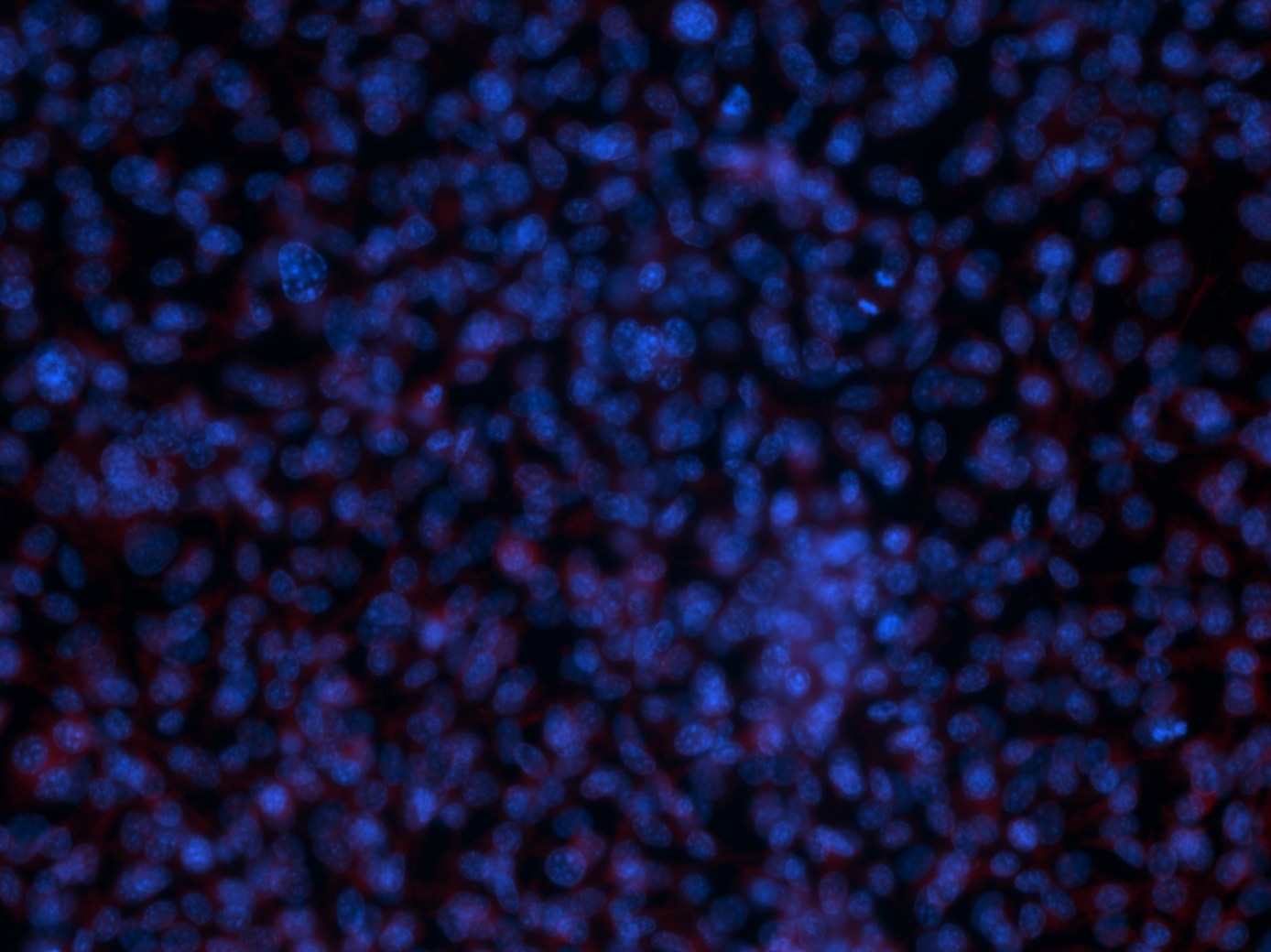 |
FH Isha (Verified Customer) (09-20-2021) | signal was very good. My sample was renal tissue lysate after ischemia reperfusion
|
